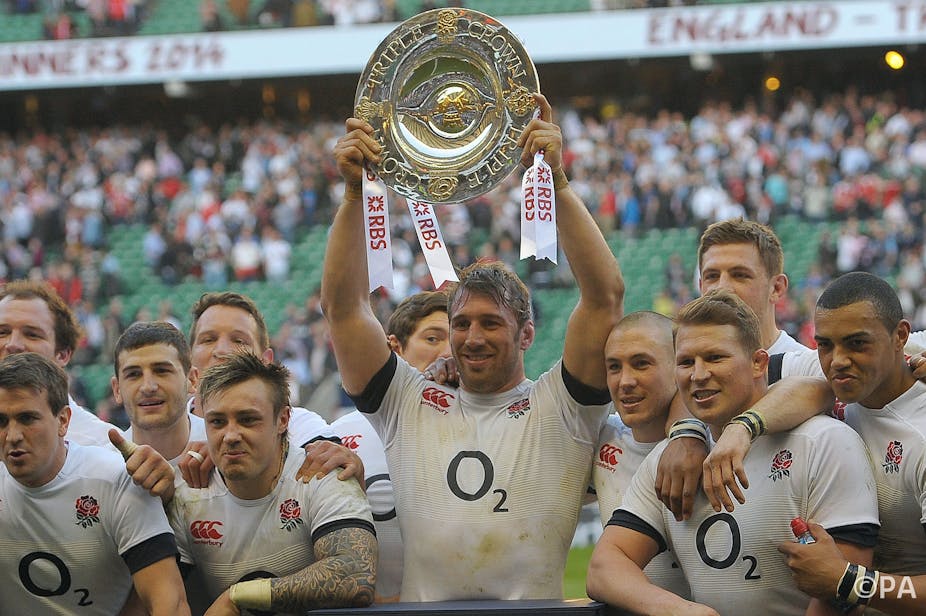Ofsted’s recent report into competitive sport in schools – provocatively entitled Going the Extra Mile – criticises state schools for not doing enough to develop sporting talent. A significant number of Britain’s elite athletes come from private schools (including 41% of GB medallists at London 2012), despite the independent sector educating only 7% of the population. But the report’s key findings and recommendations feel wildly off-target.
Bizarrely, Ofsted chose to all but ignore the obvious disparity in resources between state and private schools in their analysis. The influence of regular access to world-leading sport facilities, the best coaches and well-resourced staff enjoyed by the independent sector doesn’t seem to be an issue for Ofsted Chief Inspector Sir Michael Wilshaw:
As this report makes clear, it is not resource that is the key to independent school success but attitude.
This “attitude” is apparently made up of a combination of the culture of independent schools – where competitive sport is embedded into the philosophy of the school – and the dedication of their teaching staff, characterised as willing to “go the extra mile” to help foster sport competition and performance improvement among pupils.
The Guardian’s David Conn was, as usual, on the button soon after the release of the report, providing a short critical discussion on why the focus of the report is both unfair and unhelpful. John Steele, Chief Exec of the Youth Sport Trust pointedly emphasised the role of access to high quality facilities and expert coaches in producing talented sportspeople in his response to the report.
My old science teacher at my state secondary school, Mr Plews, would also no doubt be fuming at the report. I remember him giving up both his spare time to drive our football team to an away game and his own trainers – to our captain whose boots had split half way though the match. He watched on in torrential rain, shivering in his bare feet. We all have stories of teachers who have gone the extra mile and it is churlish to suggest they only exist in private schools.
The real irony of the report, however, is felt most in its recommendations that read like an instruction manual for the School Sports Partnership scheme. Abolished by Michael Gove in 2010, the scheme did many of the things in state schools that were deemed good practice in the private sector by this report.
Perhaps I shouldn’t have been surprised to find that a report written by a body so intertwined with government agendas should be so myopic to the obvious financial explanations for the over-representation of the privately educated among our elite sportspeople. Given this closeness to politics, and Wilshaw’s ongoing bashing of the state school sector, it should also not be surprising to see the finger of blame pointed in the direction of the disadvantaged (underfunded state schools and their overworked teachers) – rather than acknowledge the rewards and privileges that inevitably come to the lucky few with material advantages.
But the biased nature of the report may represent more than just the political ideology of the government, which overlooks the structural basis of society’s inequalities and promotes the idea of individual responsibility, equal opportunity and blaming the victim. It may also say something about how we view sport and the sporting contest more broadly.
Given its focus on competitive sport, the findings of the report reflects some of the more deeply embedded faux-egalitarian ideologies that sociologists of sport like myself bang on about to anyone who will listen. That is: sporting culture remains heavily imbued with ideas like fair play, meritocracy and, the old favourite, the “level playing field”. But the playing field is so obviously not level when access to sporting facilities and coaching varies so widely between classes and social backgrounds.
This way of thinking about the world reflects the conservative, elitist tradition that shaped the formation and codification of modern sport via the public schools of Victorian Britain. And they retain explanatory value in sport still today. Sport – like any other social milieu – remains shaped by social inequalities drawn from ideas of class, race, gender, disability, sexual orientation and so on. Despite this, it is seen to retain a kind of mystical quality that can cut through and dissolve everyday social processes. Perhaps that is one of the reasons why there are so many examples where sporting institutions fail to identify, let alone challenge inequality and discrimination in their sports.
Perhaps it’s also a reason why Ofsted’s report went to great lengths to avoid any discussion of the fact that social class seems to play almost as much a role in British sport today as it did in the 1800s.

